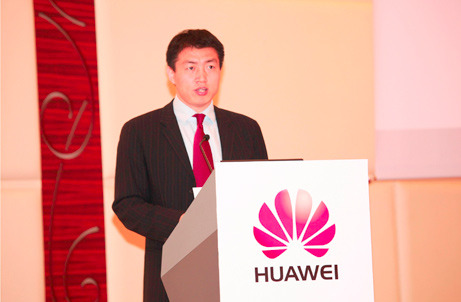Huawei, a global information and communications technology (ICT) solutions provider, will gather together a selection of high-level influencers from the region’s banks, financial institutions and insurance companies at its Smart Technologies for Smart Leaders in Finance Roadshow on 5th April in Dubai.
“Technological innovation in the retail sector has spurred financial services customers to demand the same flexible approach from their financial services company. An often complex technology environment, with legacy systems and warren-like IT network infrastructures, as well as well-founded security concerns, have meant the banking sector has been cautious so far in adopting a similar approach as the retail outlets. I am looking forward to showing participants how improved security and smart technology can support their growth goals.”
IDC estimates that financial vertical IT expenditure totalled $7.5bn across MEA as a whole in 2011, representing a 6.0% year-on-year increase. The strongest growth rates were seen in Saudi Arabia (13.7%), the United Arab Emirates (8.8%), and Israel (7.6%). A desire to appeal to customers and interact with them more closely is reflected in the sector’s adoption of social media channels and commitment to offering multi-channel services. With a mobile phone market of around 800 million subscribers in the region, mobile banking is no longer an optional extra but central to the financial sector’s customer engagement strategy. To achieve multi-channel success, the sector has to place security , reliability and innovations at the heart of its IT strategy.
The adoption of social media networks in the Middle East and African region has been growing tremendously over the last few years.. IDC expects financial institutions to increasingly embrace these platforms and use them as means of interaction with end users, which will help them better understand customer behavior and improve customer service practices.
Mark Walker, Director – Insights & Vertical Industry Practice, IDC Middle East, Africa and Turkey, added: “The typical customer is technologically savvy, and needs their bank to mirror this or they will go elsewhere. We believe mobile banking will be pivotal in capturing a large unbanked market as well as adding to the mobility experience for current banking customers. Financial institutions are looking to introduce more innovative technologies to increase their competitive edge, but they need to make sure their approach to security is watertight first. Huawei will place a particular emphasis on its end-to-end security offering, as despite aggressive rollouts of security controls such as firewalls, IPS, and antivirus, reported intrusions and their associated losses are on the increase. Huawei’s comprehensive security solutions focus on a structural approach of visibility, enabling the finance industry to develop entirely new mindsets and policies and to mitigate emerging threats that are targeting their mission-critical business applications, services, and corporate network assets.
Huawei offers a range of innovative solutions for the banking sector. These include the Multimedia Call centre (MCC), where customers no longer need to call the bank then wait for a long line of instructions, but are able to use their smart phones instead to instantly see all the menu options. E-training means institutions can train employees remotely. Virtual Teller Machines (VTM) enable customers to speak to customer service representatives remotely. Telepresence means senior management at a bank can meet on a virtual basis, and it even gives the bank the option of holding meetings over video with its VIP customers. The Virtual Mini Branch (VMB) allows banks to grow its number of branches easily and swiftly cost-effectively. Not only does this lead to improved customer experience but also increases its competitive edge in the market.
Huawei’s disaster recovery sites and new generation data centres provide banks with full data and asset protection. Its video surveillance solution provides a security layer for ATMs and branches. Its Virtual Desktop Infrastructure (VDI) solution gives users access to data stored on a secure central network, rather than on local hard disks or USBs, enhancing information security internally and externally. Cloud technology presents great potential to banks across the Middle East region, with the private cloud allowing them to securely manage infrastructure, services and applications.
